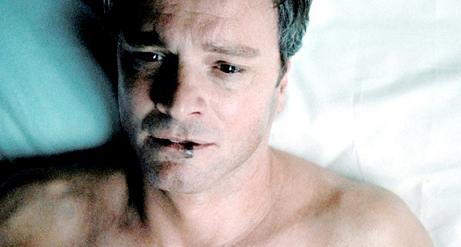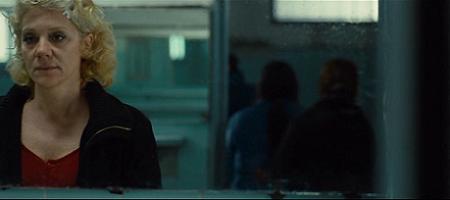Inception (Christopher Nolan, 2010)
Christopher Nolan has had an interesting career. As hard as it may be to believe, it took a lot of convincing from him and David S. Goyer to get Warner Brothers on board for Batman Begins. Cut to five years later; Nolan is arguably the biggest director in Hollywood, and has basically free reign when it comes to passion projects (provided, as it was with The Dark Knight and will likely be with Batman 3, he always goes back to the well in-between). However, unlike The Prestige (which was based on a Christopher Priest novel), this is Nolan’s first original script since Memento, and his first wholly original story since his debut film, Following. So the question becomes, without previous source material or the history of Batman as a crutch, can Nolan succeed?
The answer is yes. With Inception, Nolan has made his best film since Memento, and with time I may very probably come to think of as his best film ever. Leonardo DiCaprio plays Cobb, a “dream thief” whose job is, in its most BASIC terms, is to break into a subject’s mind and steal a secret once inside. That’s really all the information I want to give regarding the plot, because having the opportunity to see it for the first time, knowing as little as possible, is an experience I don’t want to take from anybody.
With the majority of the film taking place in the world of the dream, obviously the possibilities when it comes to action sequences and set pieces is basically limitless. And Nolan does not disappoint. He does some truly fascinating things with paradoxes, endless mirrors, and gravity-less hallways that rival (and, in fact, surpass) the effects in anything he’s done before. And as far as action sequences go, it’s no contest; he’s never done them better.
The script is top-notch, and manages to keep up with the complexity of the effects completely. I like the fact that Nolan gives quite a bit of information (what I’d call the “rules”) in the beginning, then pretty much leaves a lot open for the viewer to pick-up and interpret in their own way. There’s a few clunky lines, but that’s counter-balanced by a couple speeches I can assure you you will be seeing in Facebook and Twitter status updates for months to come.
Maybe my favorite part of the film is the score by Hans Zimmer. Quiet when it needs to be quiet, LOUD when it needs to be loud, and beautiful when it needs to be beautiful, it really carried me through the film.
With so much greatness in place, you would hope the cast would be up to complete the challenge, and (for the most part) they are. Tom Hardy (known to a lot of cinephiles for his breakout performance in Bronson) is on his way to becoming an ENORMOUS star. Don’t be surprised to see him filling James Bond’s shoes in the future. Marion Cotillard manages to be both strikingly beautiful and terrifyingly scary, often in the same moment. It’s also fitting that Edith Piaf’s “Non Regrette Rien” is the song at the center of the film. DiCaprio and Levitt both hold their own, though they’ve certainly been better (DiCaprio’s been better this year, in fact). The two problems I had in this category were Michael Caine (who is almost completely wasted) and Ellen Page, who I normally love, but is pretty much sleepwalking through the film. Yes, it’s nice to have her there explaining everything, but she could’ve at least ACTED a little more interested.
In the end, however, Inception is incredible. Astounding. Mind-bending. Heartbreaking. And 1,000 more adjectives. It’s probably Nolan’s second masterpiece, and, based on his track record, not his last. He has proved for four straight films now that it is (shockingly) possible to make blockbusters that can both appeal to a wide audience but still actually make you think (I’m talking to you, Seltzer and Friedberg). Now hurry up and get done with Batman 3 so you can focus on your original ideas again, sir.



















